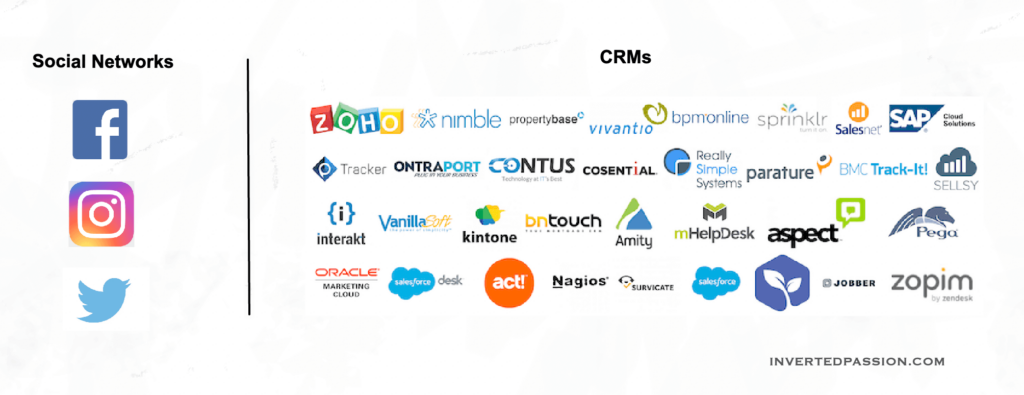There are only a few dominant social networks because consumer markets are prone to winner-take-all effects. There are multiple reasons for this.

First, consumers want stuff for free or cheap which drives consumer companies to expand aggressively so that they can amortize their fixed costs over many such users.
Second, consumers want to conform with other consumers so inherent virality in products gets built-in. Once, a minimum threshold of consumers adopt a product, this word-of-mouth virality ensures the product becomes an obvious choice for the remainder of consumers left in the market. If you have Uber that all your friends are using and it has all the drivers in your city, why would you try something else?
But since businesses want to differentiate, each one of them is different than the other in their processes and strategy. This differentiation between businesses creates an opening for numerous products to exist, each one of them solving an almost unique problem for a specific set of businesses. Also, for B2B products, since the number of businesses is far less than the number of consumers, whatever network effects are there, they are weaker than B2C. There are network effects in B2B for sure: partner networks and communities emerge from successful B2B products but their impact is weaker. These network-effect-driven benefits in B2B can be overcome by solving a business problem in a way that’s specific to a niche market.
That’s why there are hundreds of CRMs out there that businesses buy in spite of Salesforce because these non-Salesforce CRMs are able to offer a better service, customized implementation, or that tiny feature that some companies want (which Salesforce doesn’t have).
Of course, there’s a flip side to this. Because few B2C products dominate the entire market, the largest tech companies in the world are predominantly B2C commanding astronomical valuations that B2B companies can only dream of.
So, ultimately, the choice between B2C and B2B is really a choice between high-risk/high-reward and low-risk/low-reward.
Remember: a B2B company is far more likely to be successful but it is far less likely to be as valuable as a successful B2C company.
This essay is part of my book on mental models for startup founders.
Join 150k+ followers
Follow @paraschopra